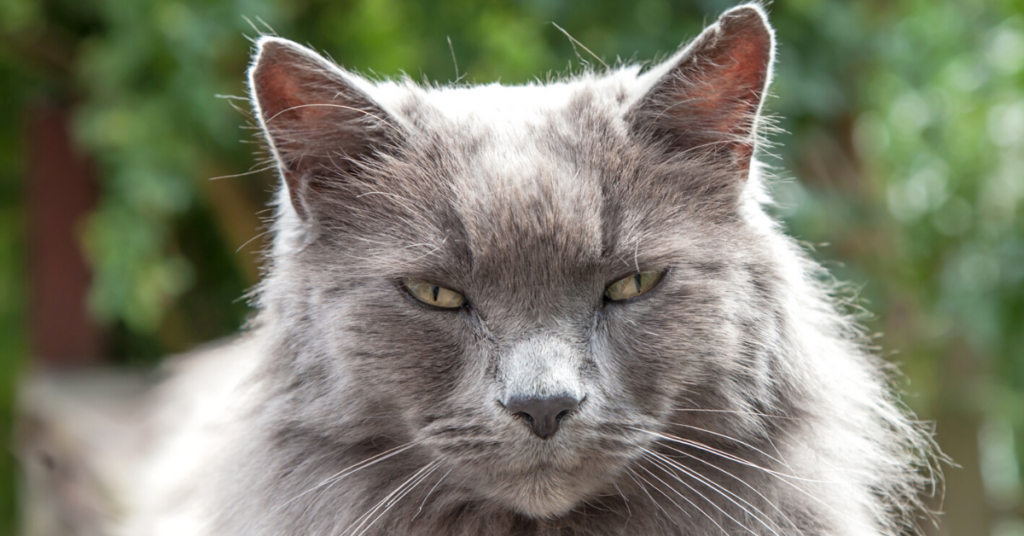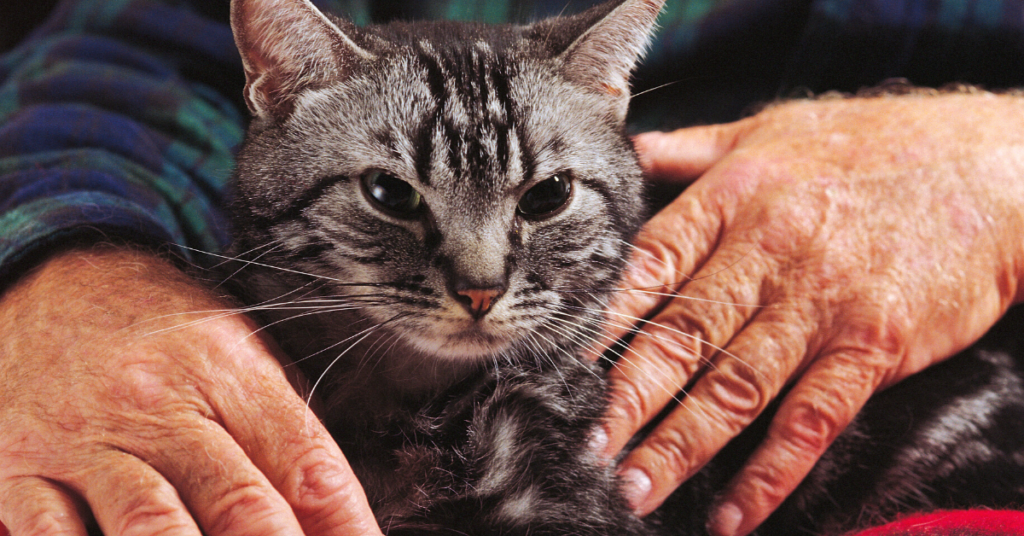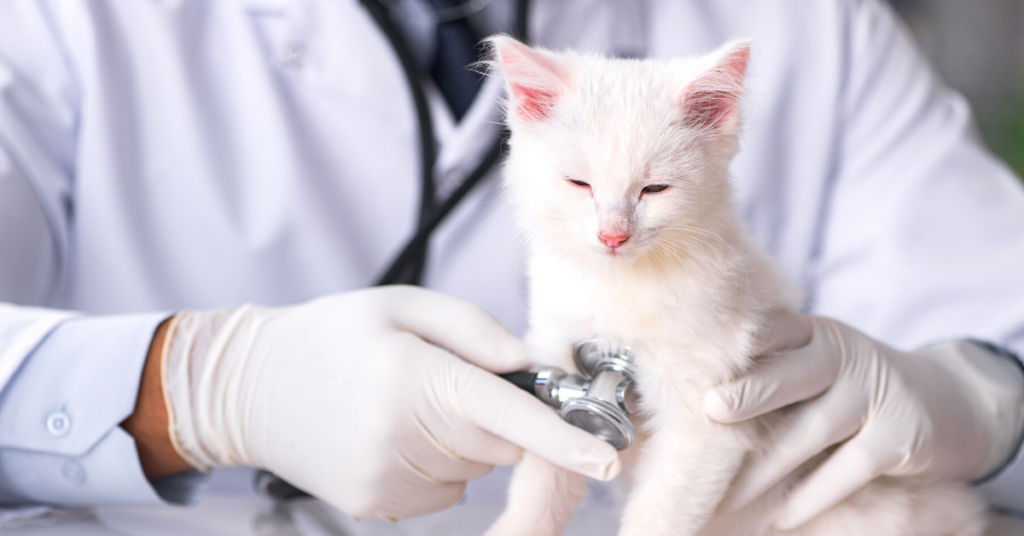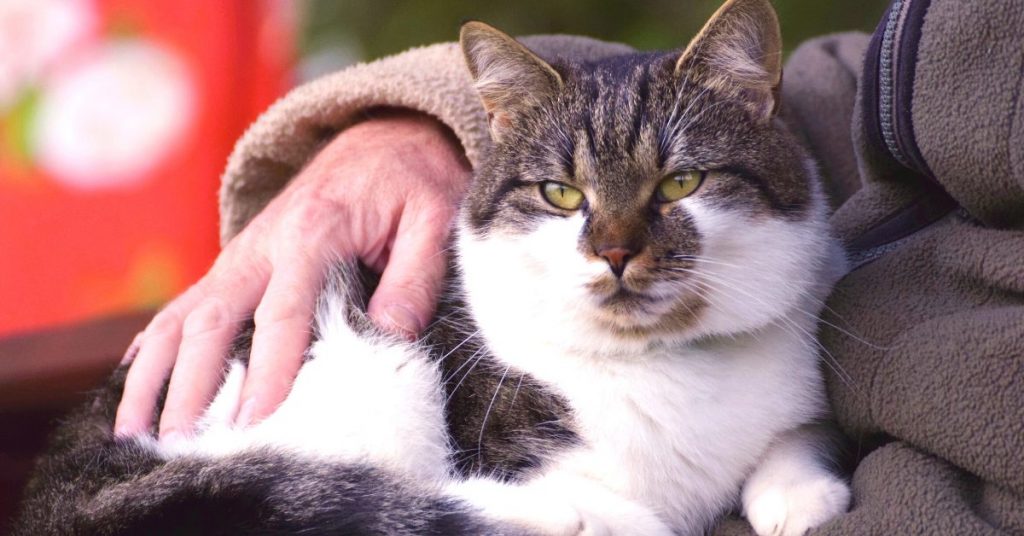Signs A Cat Is Dying
Reviewed by Erica L. Tramuta-Drobnis, VMD, MPH, CPH
Knowing the signs a cat is dying can help you prepare for the worst.
Losing your cat friend can be devastating.
However, it’s advisable to know the signs when the cat is ready to go. This helps you to better help and prepare your cat in it’s final days.
Pet owners can get very attached to their cat, since they can live from 12-20 years. Cats are good at hiding their pain unlike dogs.
Read more to keep an eye out for these signs, so you can give your cat the needed care to stay comfortable.
Signs Your Cat Could Be Dying

Cats have a great survival instinct, in which they hide their pain or injury very well. However, for our pet owners, it can be a challenge.
Signs your cat could be dying include common signs of illnesses such as cancer and kidney disease.
Dying cats may have labored breathing. Her respiratory rate can speed up and slow down randomly.
Once you notice any signs, it’s best to visit your vet to help diagnose your cat and advise you on what should be done.
Signs a cat is dying include:
Extreme Weight Loss
Senior cats tend to lose muscle mass, and experience weight loss. This is because the body becomes slower at digesting and building protein.
Cancer can cause extreme weight loss, where the dividing cancer cells require a lot of energy, causing the body to break it’s own fat storage and muscle mass.
Hyperthyroidism and chronic kidney disease also often cause weight loss. If your healthy older cat is suddenly losing so much weight, and the bones protrude, you may need to prepare yourself for your cat’s last goodbye.
Lack of Interest in Eating or Drinking
As cats age, they normally lose their appetite. Their body becomes less efficient and weaker in processing foods and drinks.
Lower Body Temperature
One of the signs your cat could be dying is low body temperature. Healthy cats have a temperature of 37-38 degrees celsius. As the heart weakens, the temperature starts to go lower than 37 degrees.
Use a digital rectal thermometer or an ear thermometer to check their temperature. You can also feel their paws if they’re cool to the touch. Low body temperature can be a sign of the heart’s speed slowing down.
Decreased Mobility
Decreased mobility is common in older cats due to muscle loss and sometimes arthritis, or other health conditions.
Their ability to move decreases gradually. For example, they won’t be able to jump up on counters or high places. This can develop to the point where getting out of the litter box can be difficult.
Seeking Solitude
Cats tend to like hiding usually. However, if they hide more than usual, and refuse to go out to play or eat. This can be a sign that they are dying.
How To Comfort Your Dying Cat

If you know that your cat is dying, it’s time to give your cat extra care and attention to make her feel as comfortable and loved as possible during her last days.
- Try to make her bed as cozy and warm as possible and easy to access. You can add extra blankets. You can also add a small heating pad to keep your cat warm and cozy. You may need to add extra blankets on top to avoid making your cat too hot.
- Offer treats and foods with a strong smell, to encourage her to eat, such as fish-flavored food. If your cat doesn’t want to chew, offer her some canned food mixed with warm water.
- Help her in grooming by brushing her hair and cleaning
- Make sure that all her needs are met and accessible like her water and food bowls, and her litter box.
- Provide ramps to help her go up and down stairs, or hold her up to her favorite higher spots
- Talk to your vet about medications to ease the symptoms, such as pain killers, steroids, or appetite stimulants
- Spend time nearby your cat and respect her wishes. If she wants to cuddle and be loved, make sure to offer her love and care. If she wants to sit alone, respect her wish.
- Try to keep your home as quiet as possible. Reduce unfamiliar visitors, and try to have your family gatherings take place outdoors or in other rooms away from your cat.
When to See a Veterinarian

If you notice changes in behavior in your cat, such as hiding more and loss of appetite or physical changes such as decreased mobility and extreme weight loss.
It’s best to visit your vet to help diagnose your cat, and know for sure if she’s dying or suffering from another illness.
Some cat owners choose euthanasia for their cats to help relieve their pain. It’s also better to discuss this with your vet based on the diagnosis, and consult your family and friends.
In case you choose to go for euthanasia, the vet will give an overdose of a sedative so the cat can pass quickly and pain free.
When your cat has passed, you can choose to either bury her (according to local laws) or opt for cremation. Your veterinarian can help you with options available in your area.







